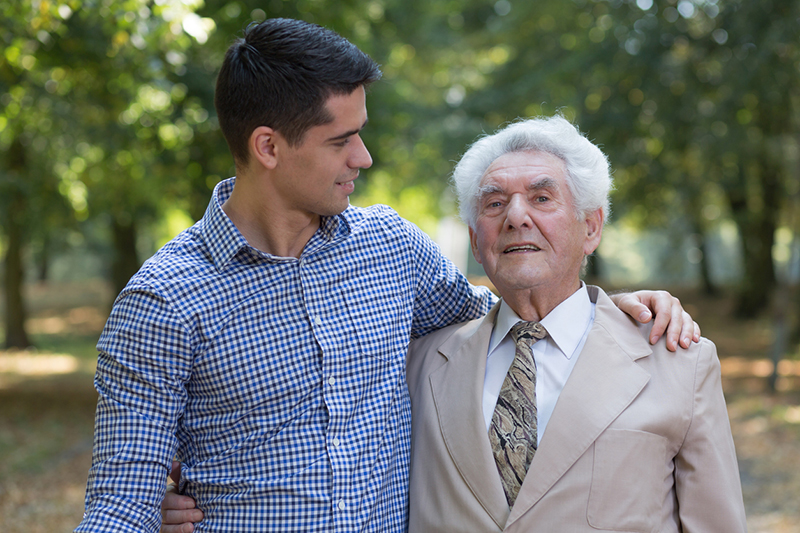Dementia confusion, a typical occurrence in Alzheimer’s, can lead to recent memories being forgotten or altered, while those from the more distant past remain unaffected. This can cause memories from the past to be more realistic to an older person with dementia than the present. A person’s alternate reality might be the senior’s way of making sense of the present through past memories.
Seniors with Alzheimer’s disease very often have challenges with expressing themselves, and at times their alternate reality has more to do with a need or a specific feeling they are attempting to express than it has to do with the words they are saying.
For instance:
- “When will my wife be coming home?” This question could be more about a need for affection or acceptance or a home-cooked meal than it could be about wanting to see his wife, who passed away many years ago. An effective reaction to learn more might be, “Why do you want to see her?”
- “I need to deliver all these casseroles to our neighbors before the end of the afternoon.” Despite the fact that these casseroles do not really exist, the words could actually imply a need for purpose in daily life or wanting to be involved in an activity. An appropriate response to figure out more could be, “Why did you make the casseroles for the neighbors?”
Keeping a journal of these kinds of events can help you see a pattern in the senior’s dementia confusion. The more you listen in and pay close attention, the easier it will be to comprehend the thinking behind the alternate reality and the ideal way to react.
Is It Alright to Play Along?
As long as the scenario isn’t going to be unsafe or unacceptable, it is perfectly fine to play along with the older person’s alternate reality. Doing this isn’t going to make the dementia worse. Keep in mind, the individual’s reality is accurate to him/her and playing along can make the older adult feel more comfortable.
If the situation is inappropriate or might cause harm to the older person, try to reply to the perceived need while redirecting your loved one to something safer or more appropriate.
Bear in mind these 3 steps:
- Reassure the senior.
- React to his/her need.
- Redirect if required.
Also, call on the caregiving team at Compassionate Care Home Health Services, providers of specialized Alzheimer’s care. Our caregivers are on hand to offer compassionate, professional respite care services for family caregivers who could use some time to refresh and recharge. Contact us any time to learn more about our top-rated dementia home care in Midland, MI and the surrounding communities at 877.308.1212.

